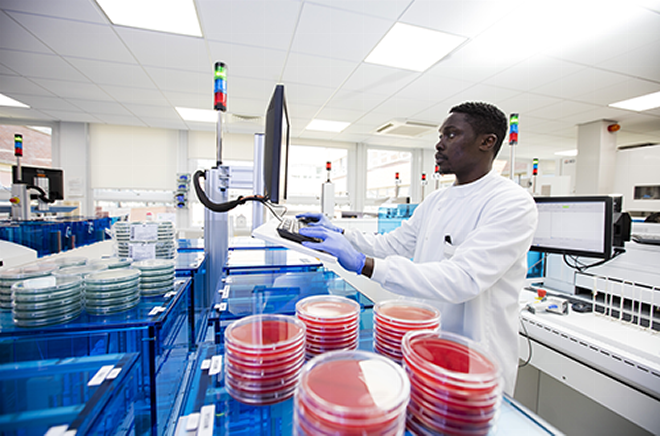Supporting Group B Strep awareness

Group B Streptococcus (GBS) is a normal bacterium which is carried by 20-40% of adults, most commonly in the gut, and for up to 25% of women, in the vagina, usually without symptoms or side-effects.
But occasionally it causes infection, most commonly in newborn babies, sometimes in adults and, very rarely, during pregnancy and before labour.
Early-onset GBS infection is the more common, occurring when the baby is up to six days old, while late-onset GBS infection – usually presenting as sepsis and meningitis – occurs between the age of one week and three months old. Beyond that infection in babies is extremely rare.
Overall approximately 1 in every 1,000 babies born in the UK develops group B Strep infection.
GBS Testing
While many countries offer GBS screening of pregnant women as standard, that is not the case in the UK. While tests are readily available privately, a lack of scientific consensus on the benefits means approaches to GBS screening vary considerably between NHS trusts.
Some offer a targeted Enriched Culture Medium test – one of the most sensitive microbiology tests available – to all pregnant women, others test only those deemed ‘at risk’, or take action if Group B Strep is an incidental finding picked up in standard swab tests. Rapid molecular tests are also available, but these are expensive compared to culture methods for some hospital laboratories
Ian Cocking, who chairs the microbiology specialist advisory panel at the Institute of Biomedical Science, says:
"It is an infection which can cause severe disease and ultimately death in neonates – it most commonly causes neonatal septicaemia or pneumonia."
The Enriched Culture Medium test, described by the UK Standards for Microbiology Investigations, involves using an enrichment broth to encourage the growth of any Group B Strep organisms present, as they will often present in low numbers in a screening sample.
Ian adds:
"It takes two to three days to grow the bacteria and another day to perform antibiotic sensitivity testing to help determine the most appropriate antibiotic treatment.
This is something biomedical scientists perform every day. GBS screening is an inexpensive test provided by biomedical scientists to back up and influence clinical assessments and judgements.
Biomedical Scientists are integral to the analysis of microbiological cultures and antibiotic sensitivity testing. We are involved in the selection of the most appropriate testing protocol to detect Group B Strep. Unfortunately, we have little influence in whether Group B Strep screening is offered as a pathology service. Local screening policies are often directed by obstetrics and gynaecology consultants, medical microbiology consultants and clinical directors*.
We are a small piece of a big jigsaw, but, as with so much of the work of biomedical scientists, it is a crucial piece and one which makes a powerful difference to the lives of women and babies.
*The Royal College Of Obstetricians and Gynaecologists recommends that the option of an ECM test should be discussed with women who tested positive in their previous pregnancy.
A mum’s story
One mum, Gabriella Croci from Weybridge in Surrey, is now raising awareness after her own experience. She tested positive for group B strep after seeking a private test late in her first pregnancy. After treatment with intravenous antibiotics through her labour, her daughter Liliana was born in June last year without any concerns.
She and husband Alessandro only found out about Group B Strep through his online football chat group, after one of the members shared the sad news that he had lost his son to the infection shortly after he was born.
Gabriella says:
"I’m shocked that very few people are aware of it until it’s too late. There was no leaflet, it was never mentioned at any appointment – it shouldn’t be like that. It’s as serious as anything else that you’re told about during pregnancy – so I can’t believe that it’s not even discussed – just a few minutes of conversation is all that it would take."
She is now expecting her second child in November and seeking a GBS test through the NHS.
Group B Strep Support
Jane Plumb MBE, Chief Executive & Founder of Group B Strep Support, a charity which aims to eradicate group B Strep infection in babies, says:
"We’re delighted that the ECM test is being made more widely available in the NHS. It will detect almost twice as many women carrying group B Strep as the all-purpose swab test commonly used in the NHS.
It’s really important that new and expectant parents are made aware of group B Strep, and we welcome the Institute of Biomedical Science’s support in reaching more people with information on group B Strep."
To find out more about GBS Awareness Month and for more information on group B Strep for healthcare professionals, please visit Group B Strep Support
